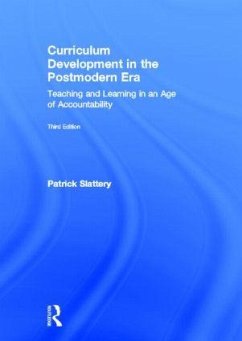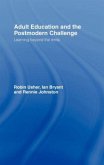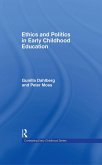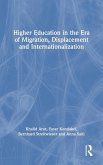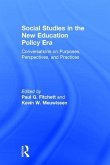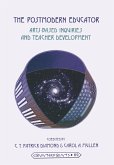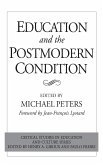Curriculum Development in the Postmodern Era provided the first introduction to and analysis of contemporary concepts of curriculum development in relation to postmodernism. It challenged educators to transcend purely traditional approaches to curriculum development and instead to incorporate various postmodern discourses into their reflection and action in schools. Since its publication in 1995, the curriculum studies field has exploded, the very notion of the postmodern has shifted and the landscape of American schooling has changed dramatically - federal policies like "No Child Left Behind" have dramatically increased the focus on accountability and consequently what and how teachers teach. In this much-anticipated and thoroughly updated edition, noted curriculum studies scholar Patrick Slattery tackles these and other issues to reflect on the current state of curriculum development and on where the field may go from here.
This landmark text was one of the first to introduce and analyze contemporary concepts of curriculum that emerged from the Reconceptualization of curriculum studies in the 1970s and 1980s. This new edition brings readers up to date on the major research themes (postmodernism,ecological, hermeneutics, aesthetics and arts-based research, race, class, gender, sexuality, and classroom practices) within the historical development of the field from the 1950s to the present. Like the previous editions, it is unique in providing a comprehensive overview in a relatively short and highly accessible text. Provocative and powerful narratives (both biography and autoethnography) throughout invite readers to engage the complex theories in a personal conversation. School-based examples allow readers to make connections to schools and society, teacher education, and professional development of teachers. Changes in the Third Edition New Glossary - brief summaries in the text direct readers to the Companion Website to read the entire entries New analysis of the current accountability movement in schools¿including the charter school movement. More international references clearly connected to international contexts More narratives invite readers to engage the complex theories in a personal conversation Companion Website-new for this edition
This landmark text was one of the first to introduce and analyze contemporary concepts of curriculum that emerged from the Reconceptualization of curriculum studies in the 1970s and 1980s. This new edition brings readers up to date on the major research themes (postmodernism,ecological, hermeneutics, aesthetics and arts-based research, race, class, gender, sexuality, and classroom practices) within the historical development of the field from the 1950s to the present. Like the previous editions, it is unique in providing a comprehensive overview in a relatively short and highly accessible text. Provocative and powerful narratives (both biography and autoethnography) throughout invite readers to engage the complex theories in a personal conversation. School-based examples allow readers to make connections to schools and society, teacher education, and professional development of teachers. Changes in the Third Edition New Glossary - brief summaries in the text direct readers to the Companion Website to read the entire entries New analysis of the current accountability movement in schools¿including the charter school movement. More international references clearly connected to international contexts More narratives invite readers to engage the complex theories in a personal conversation Companion Website-new for this edition

